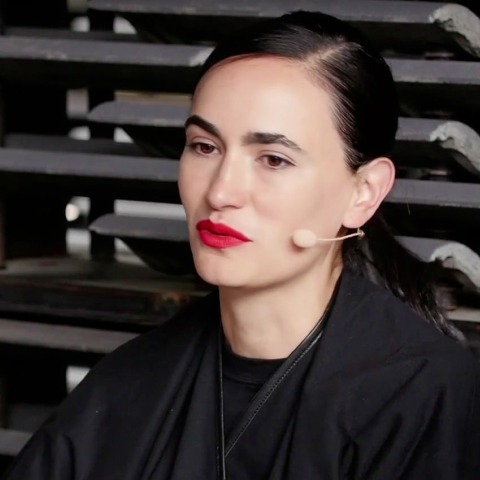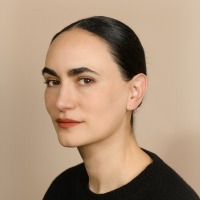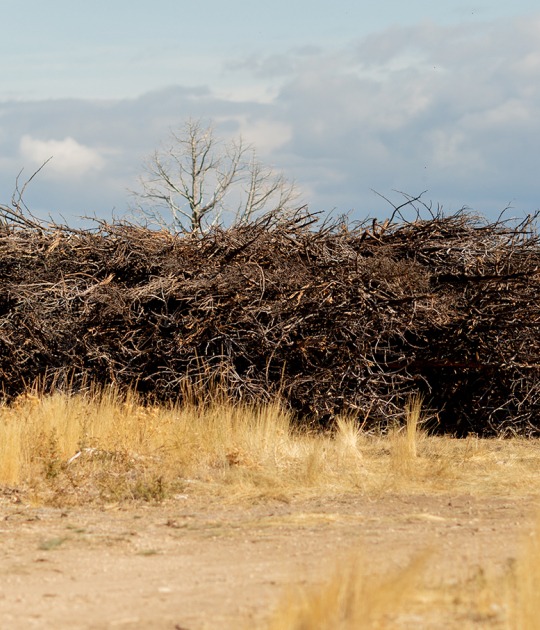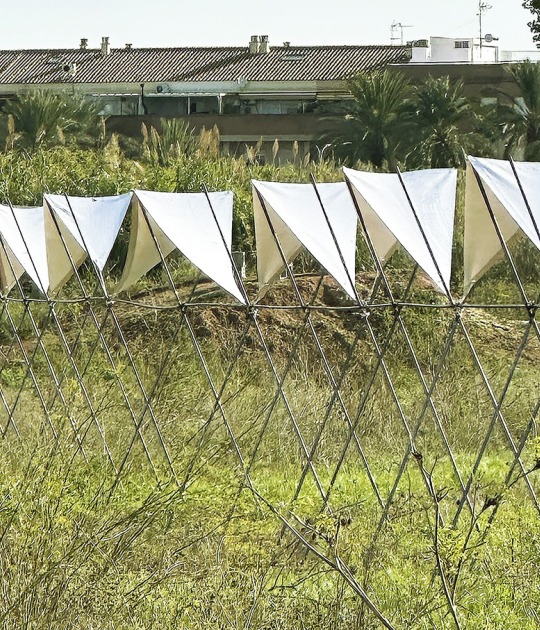The lattice walls of the Pavilion are inspired by a celosia, a traditional breeze wall commonly used in Mexican domestic architecture to bring air and light into the home. Here they are composed of cement roof tiles commonly used in the United Kingdom, arranged into a pattern that diffuses the visitor’s view, transforming Kensington Gardens into a blur of greens and blues. The selection of materials, which have a dark colour and textured surface have been chosen for their contrast with these environs.
Two reflective elements inside the Pavilion emphasise the movement of light and shadow within the Pavilion over the course of the day. The curved underside of the canopy over the central space is clad with mirrored panels, throwing reflected light across the space. To compliment the canopy, a triangular mirror pool cast into the foundation of the Pavilion traces its boundary directly beneath the edge of the roof, along the north axis. This thin veneer of water, only 5mm deep, provides a shifting reflection of the sky and surrounding treeline and roof of the Serpentine Gallery.
The movement of the sun across the sky, reflected and refracted by the pool and mirrored ceiling, encourages an aw areness of time spent in shared experience and in contemplation. The design aligns material and historical inspirations from Mexico and the UK with a concept that has been central to our practice from the beginning — the expression of time in architecture through inventive use of everyday materials and simple forms. For the Serpentine Pavilion, we add the materials of light and shadow, reflection and refraction, turning the building into a timepiece that charts the passage of the day.

































